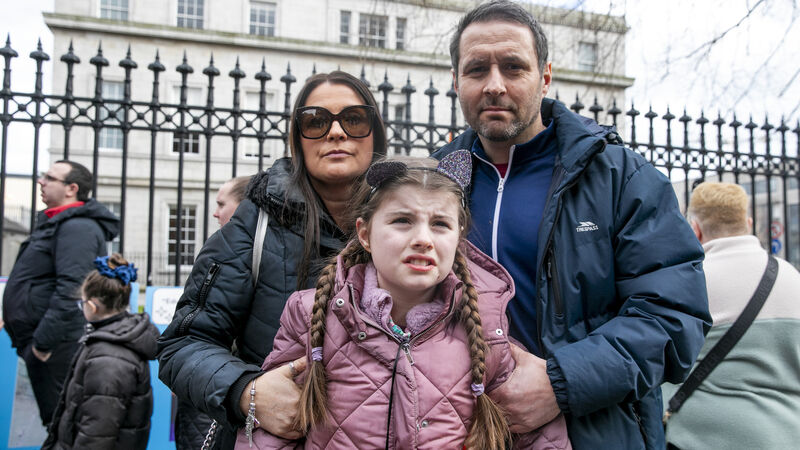'Promises mean nothing without action': Parents protest as children 'locked out of education'

Deborah McCabe and David Worrell with their daughter, Indy, 10, from Malahide, Dublin at a protest by parents, familes, and friends of children without suitable school placements at the Department of Education on Marlborough St, Dublin. Picture: Gareth Chaney
Children with additional needs have been 'locked out of education' again this year, according to parents protesting outside the Department of Education on Friday.
A group led by parents whose children have not received an offer of a school place for next year staged the 24-hour sleep-out outside the department’s offices to highlight what they say is a worsening crisis in accessing special education placements.













